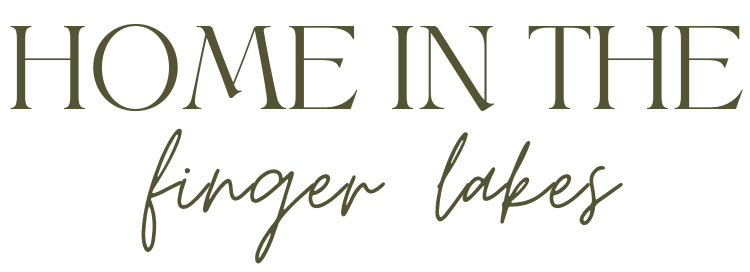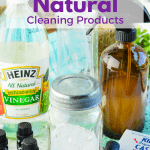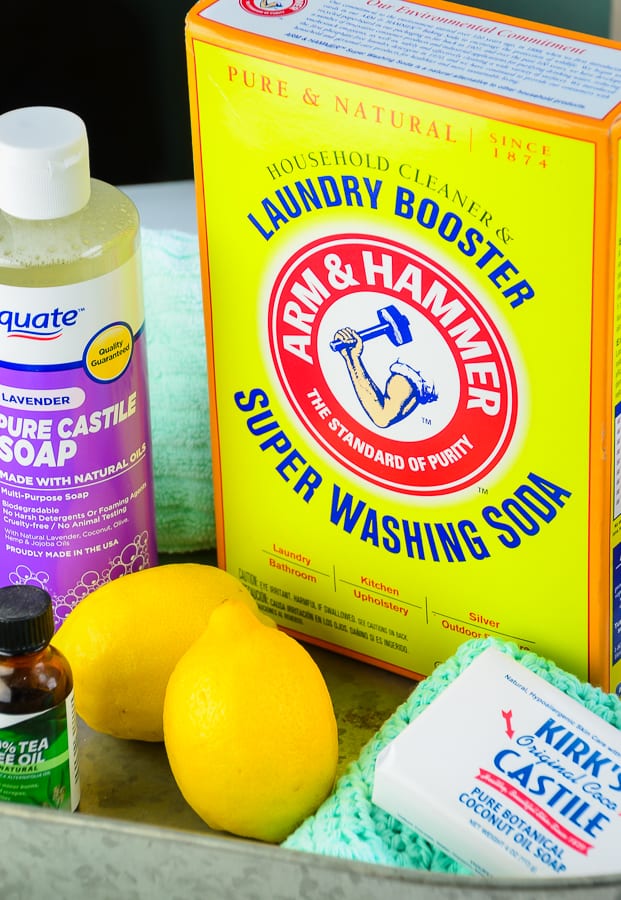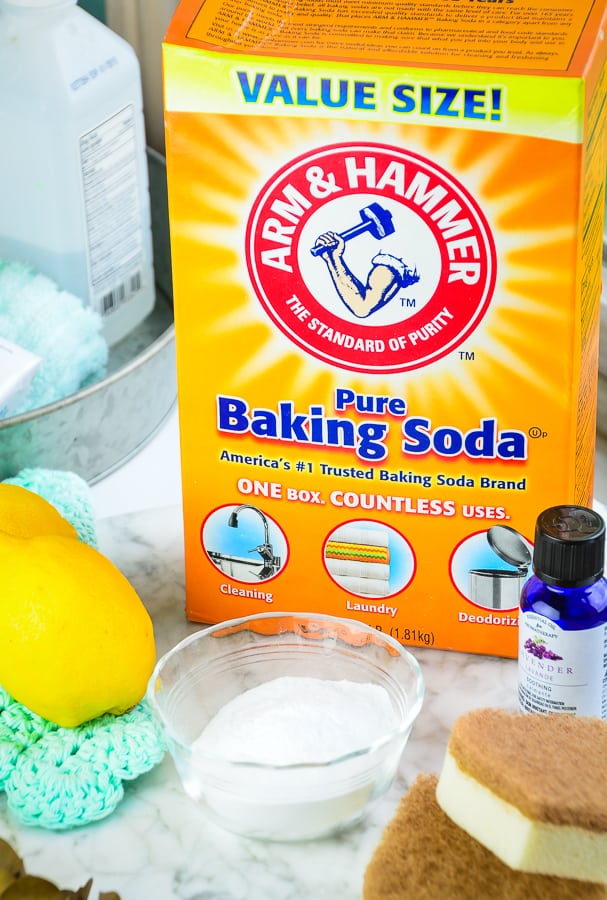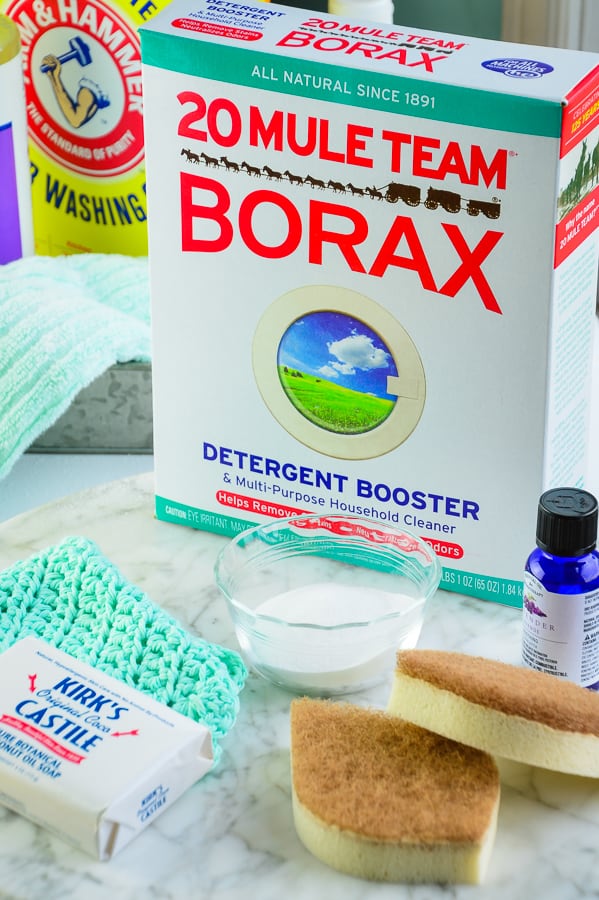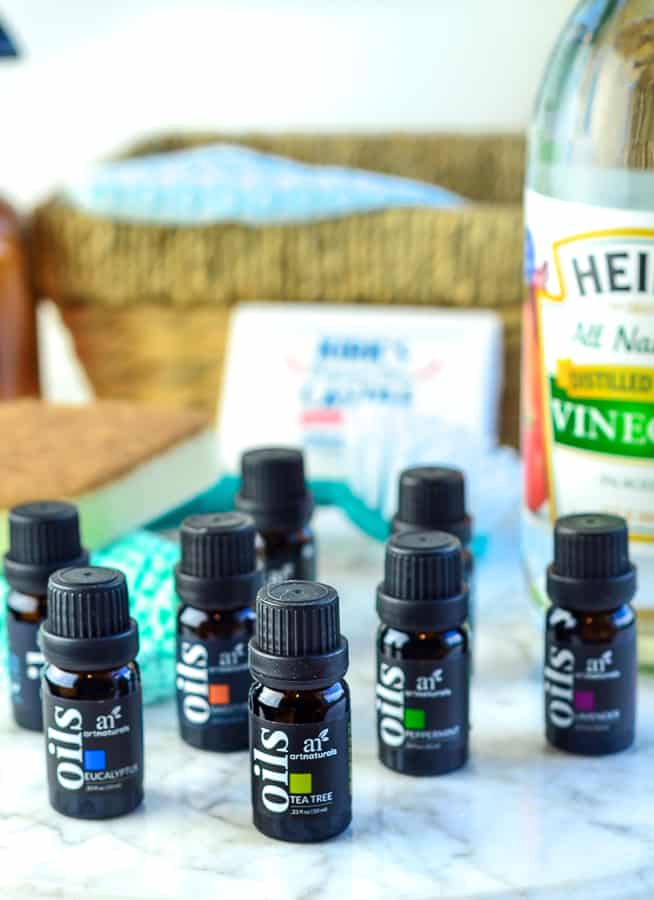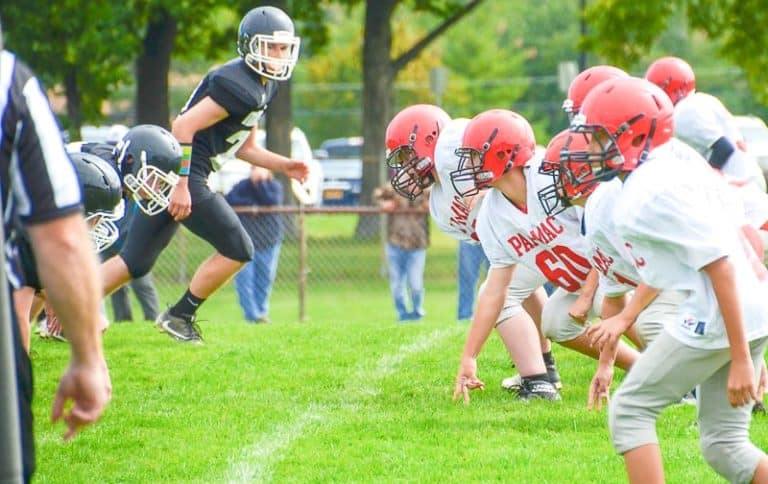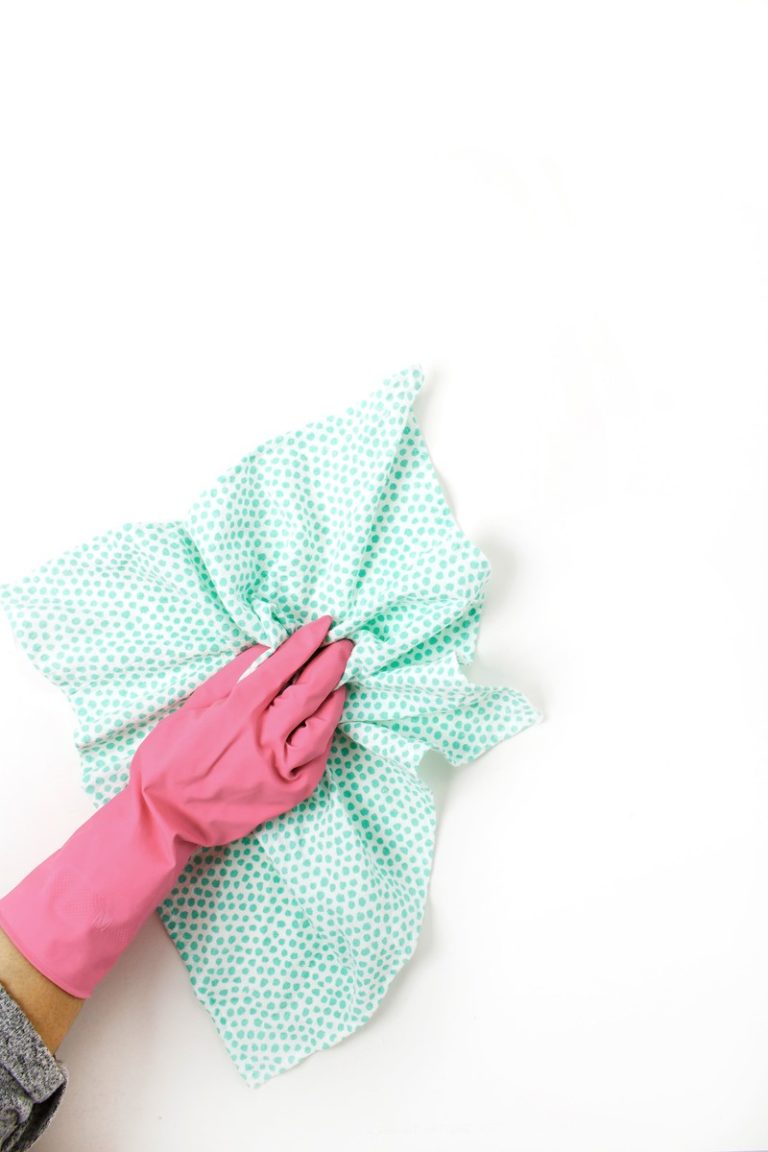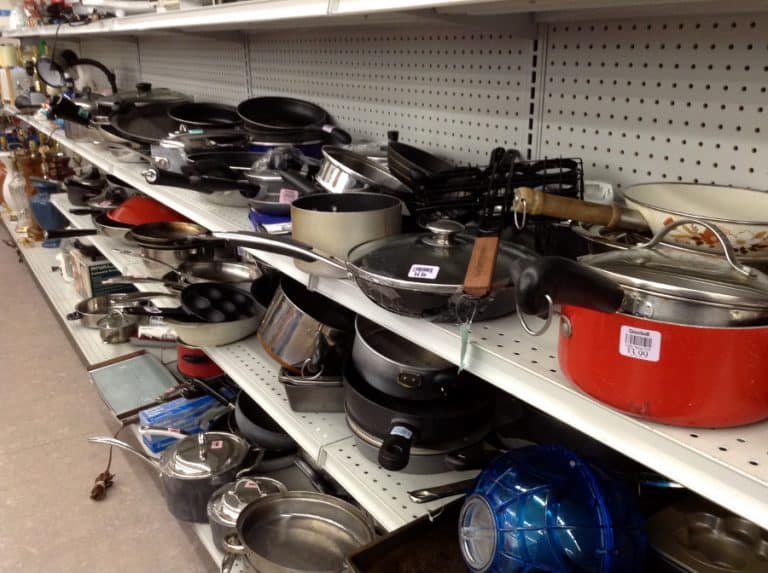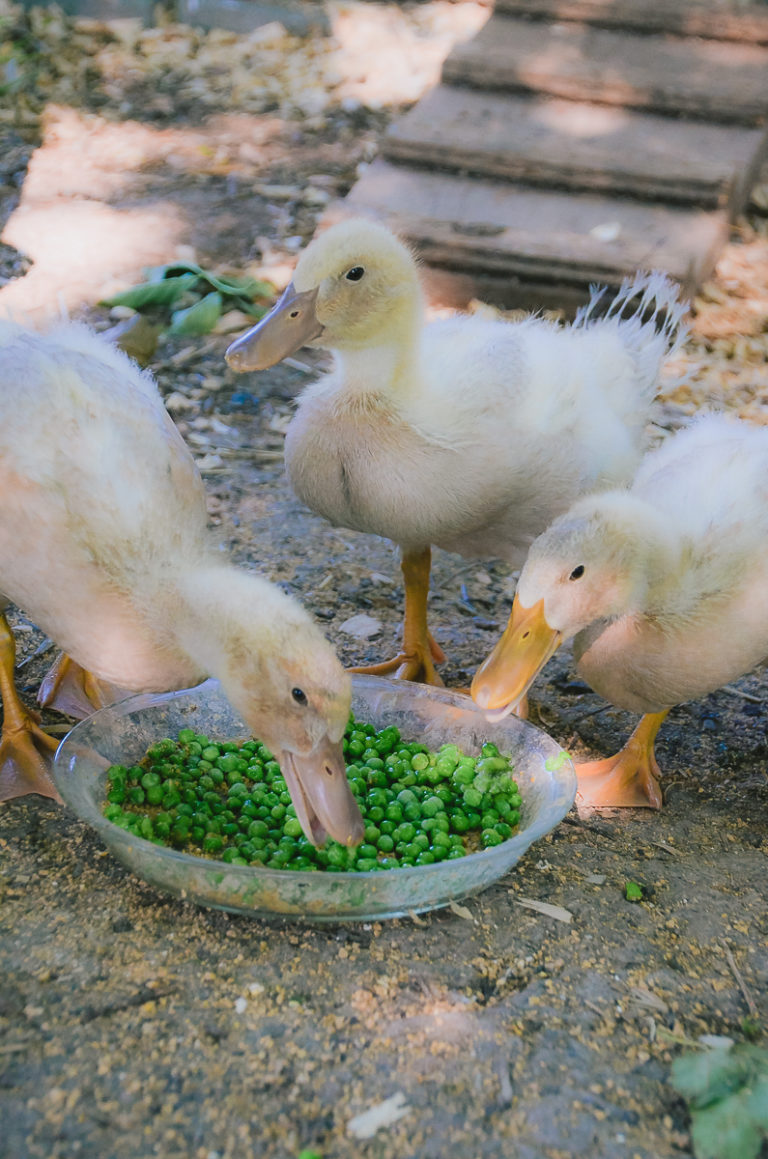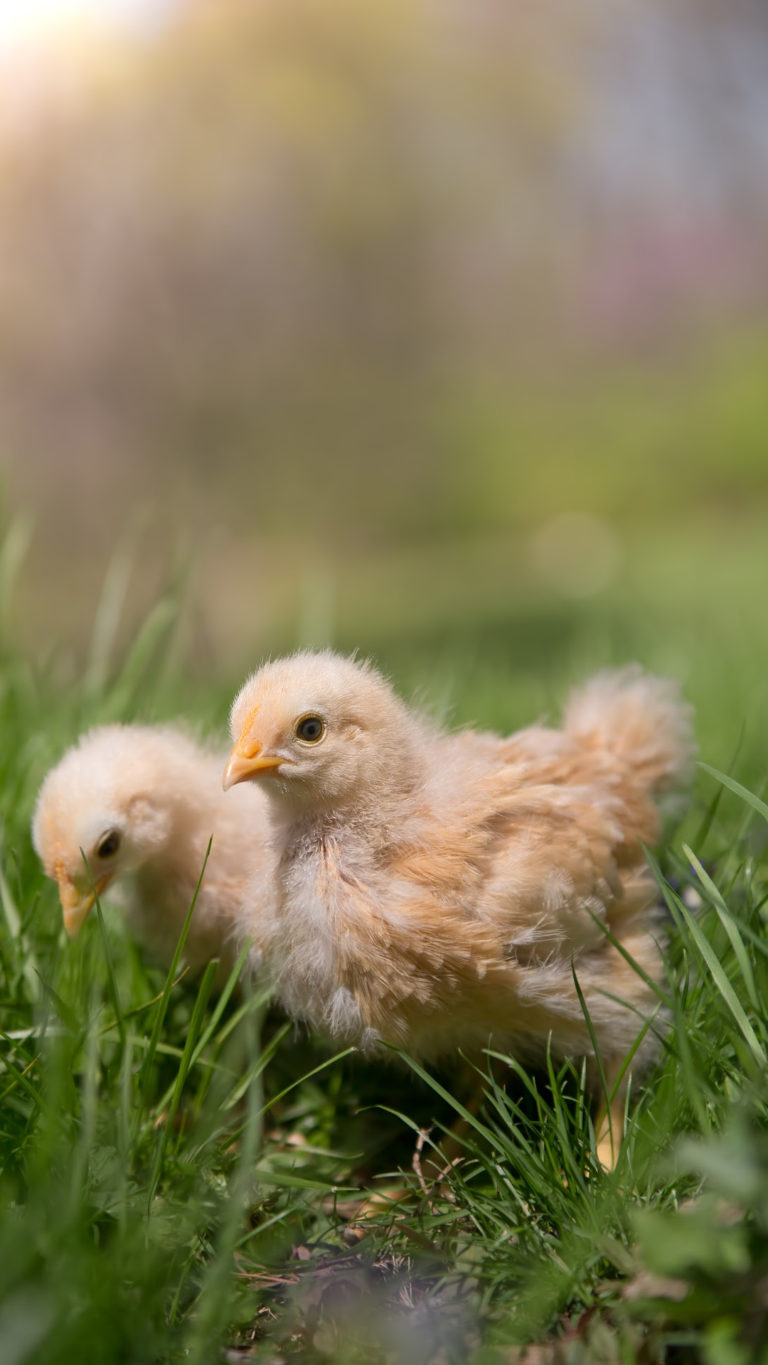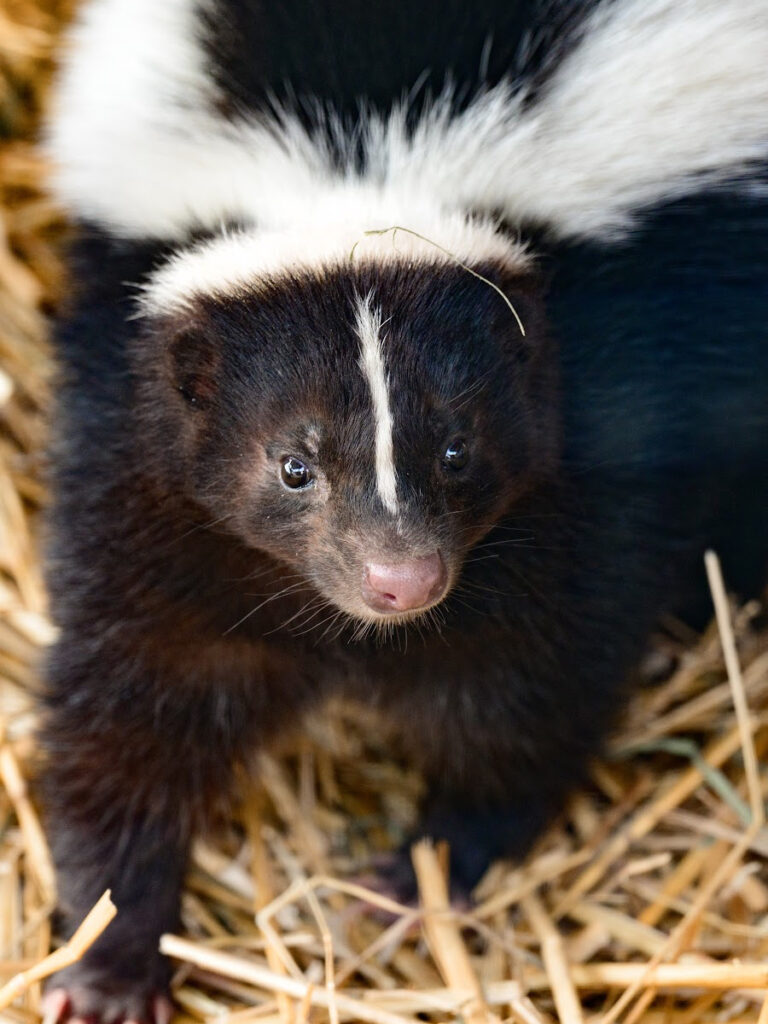Getting Started with Homemade Natural Cleaning Products
There are so many reasons to make the switch from store-bought products and getting started with homemade natural cleaning products. The homemade natural cleaners are generally more cost effective, offer a cleaner and greener way for you to keep house, and will help avoid exposure to chemicals and harsh ingredients. I made the switch a while ago after struggling with allergies and skin sensitivities, and haven’t looked back.

In the next couple of days, I will be sharing my favorite homemade cleaners with you, but I wanted to have a resource available that I could refer back to often, that covers all the basics of Getting Started with Homemade Natural Cleaning Products. I hope you find some useful insights here, whether you’re new to making your own cleaners or have been doing it for a while and are curious about what makes an effective homemade cleaner.
Making homemade natural cleaning products can seem a little intimidating, but with just a few ingredients you can begin making your own household cleaners, and I bet you already have some of these products in your house!
Basic Cleaning Product Ingredients:
Washing Soda is a natural detergent booster and freshener and can be used all around the home — not just in the laundry room! Washing Soda adds extra cleaning and freshening power to various tough household jobs. It increases your detergent’s cleaning power to get out ground-in dirt and stains and cuts through greasy soils. In addition to being an effective cleaner, it is also a natural product.
Baking Soda acts a cleaning agent because it is a mild alkali substance, and is helpful in dissolving dirt and grease to for effective removal. When it is not fully dissolved, like when it is sprinkled on a damp sponge or mixed with just enough water to create a paste, Baking Soda is mildly abrasive and can gently scrub dirt and act as a gentle scouring powder. Because baking soda is not a strong abrasive it is safe and effective as a cleaner for glass, chrome, steel, enamel and plastic. Most of us keep baking soda in the kitchen for baking, it is a pure, natural product that is edible, so it is safe to use around children and pets and is ideal for cleaning food preparation surfaces.
Borax is a naturally occurring mineral found in concentration in dried salt lake beds and consists of water, sodium, boron and oxygen. There is some controversy over Borax’s safety. There are many sites on the internet claiming it is toxic, and surely we have all heard about kids getting skin burns after inappropriately mixing borax with other chemicals to make homemade slime. After doing my own research I am ok with it for use in my household. Notes in this article helped me feel okay about using it. Borax is natural and has no inherently toxic ingredients. It doesn’t cause cancer, accumulate in the body or in nature, or absorb through the skin. Standard precautions that you would take with any cleaning product should be taken with borax.
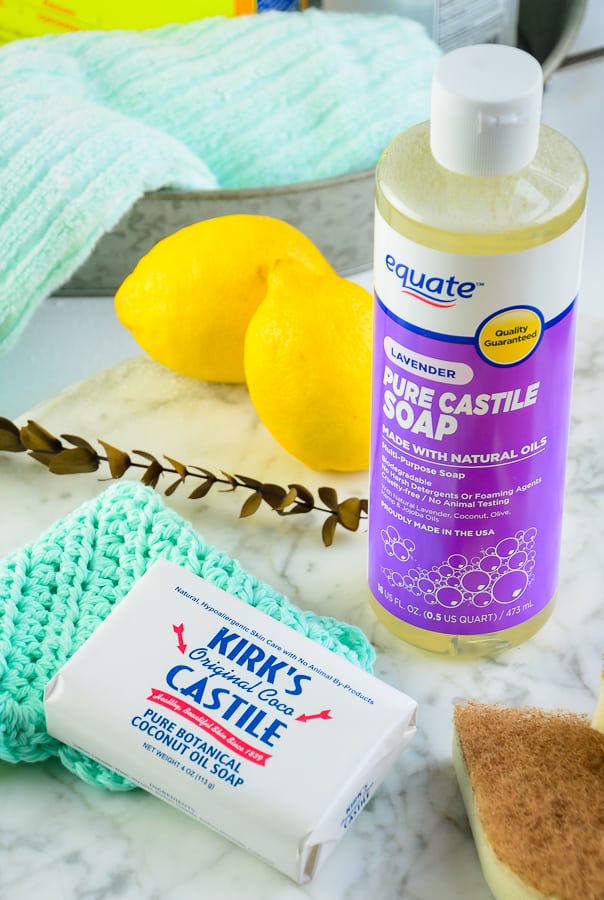
Castile Soap can come in liquid or bar form, but it is made only from vegetable oils, such as coconut, olive, and hemp oils. Like other soaps, Castile Soap is good for attracting and capturing dirt, but unlike most other soaps Castile soap is biodegradable and nontoxic, it’s safe to use on pets and around kids. You can even clean vegetables with it, as long as it’s diluted enough. One of the most popular brands is without a doubt Dr. Bronner’s Castile soap, although, I have found Walmart carries an Equate Lavender Pure Castile Soap ![]() that is slightly less expensive and works just as well.
that is slightly less expensive and works just as well.
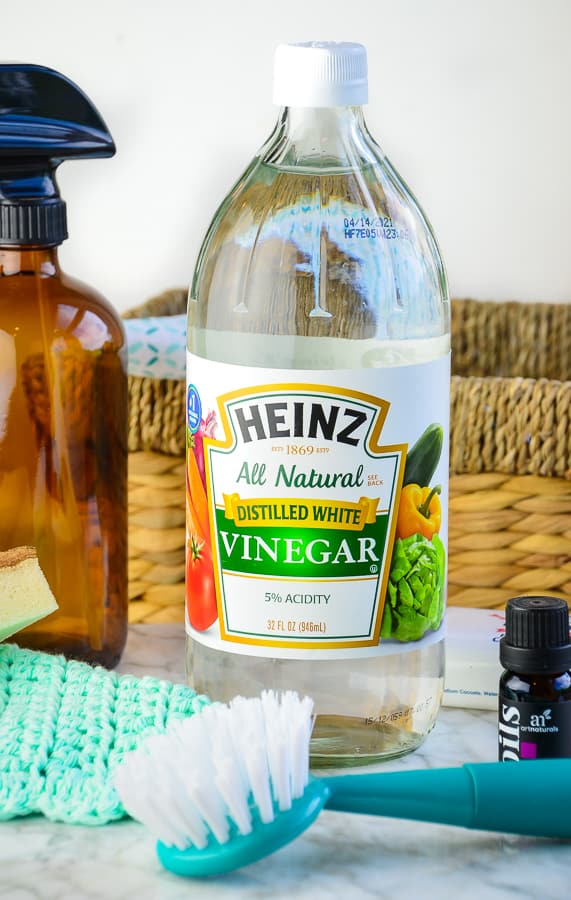
Vinegar The main compound of vinegar, Acetic acid is a great disinfectant. It also acts as a deodorizer and effectively cuts grease. Many cleaning product recipes call for Distilled White Vinegar, Heinz markets a stronger version of its white distilled vinegar as “Cleaning Vinegar” and is generally sold in 1-gallon jugs. Instead of the typical five percent acetic acid which is found in standard white vinegar, The distilled cleaning version has 6%, which boosts the strength of the vinegar by 20 per cent. While this stronger vinegar is an effective cleaner it also has a stronger “vinegar smell”, but don’t worry, the smell dissipates rapidly as it dries. Don’t look for cleaning vinegar in the cleaning aisle, my superstore sells it alongside all the other edible vinegar, in the pickle/salad dressing aisle.
Essential Oils will likely be your biggest investment into DIY natural cleaning products, but it is not a purchase you will have to make frequently! My suggestion when just starting out with making homemade cleaners is to get Eucalyptus oil, Tea Tree oil, lavender oil, and a citrus oil you enjoy the scent of. You can expand your oil collection later, but these will pack the most antibacterial, antiviral, antifungal and antiseptic properties for your budget. Don’t get caught up in the lure of expensive oils, there are high-quality essential oil brands that are reasonably priced available both online and off. My favorite “starter kit” of essential oils is available on Amazon for $13, ArtNaturals Aromatherapy Top 6 Essential Oils offers a great selection for both cleaning and diffusing and are 100% pure, therapeutic grade.
Other frequently used products:
- Distilled Water- Distilled water is water that has had many of its impurities removed through distillation, this is preferred over regular tap water because there are no preservatives in our homemade products to prevent any spoilage and there is always the possibility of trace levels of bacteria in tap water that can and will quicken the deterioration of you homemade cleaners. Only distillation removes all organic and non-organic impurities, but If you don’t want to buy distilled water (it is really cheap, though) you can boil up tap water and let it cool.
- Rubbing Alcohol/Vodka- The use of Rubbing Alcohol and vodka seems like somewhat of a hot topic among all-natural cleaning enthusiasts. When used properly rubbing alcohol is a fairly safe cleaning agent. You must use care and understand that alcohols are not always a safe choice for some surfaces and finishes, and you must always use in a well-ventilated area.
- Hydrogen Peroxide- One of the most common household disinfectants in the world, nothing is better at getting blood stains out of fabric. It is also an effective whitener, and mold and mildew combative.
Cleaning Product Tools and Storage
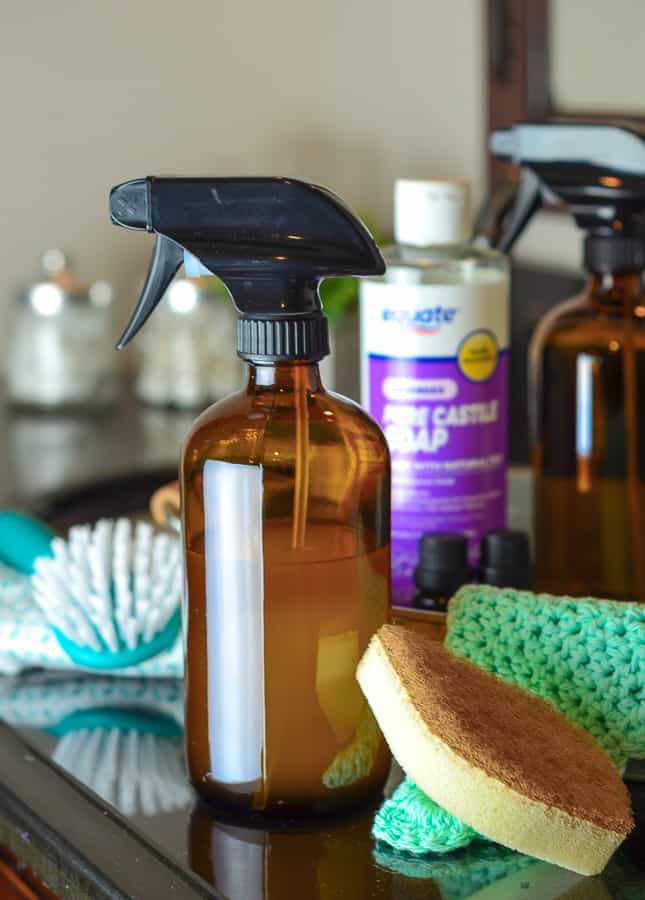
Glass Spray Bottles- Glass spray bottles are a nice way to store and prevent deterioration and permeation. I have made my own but have also recently bought these Empty Amber Glass Spray Bottles with Labels, which I am really happy with.
Plastic Spray Bottles- There is a lot of talk on the interwebz about how you should only store your homemade cleaning mixtures in glass spray bottles, this is an over-generalization and may not even be desirable for some uses, like homemade daily shower spray (which I leave right in my shower). Plastic or aluminum bottles for products containing “diluted” essential oils is perfectly fine. Just know that the plastic bottle will most likely absorb the essential oil scent, so you are probably going to want to designate it to one specific cleaner.
Funnels- Make life much easier when pouring liquids into jars!
Mason Jars- These are great for storing powders, pastes and homemade fabric softener.
Labels- It is important to label the containers that store our homemade soaps, detergents, and cleaners, so there is no confusion when guests come, or the kids want to help out around the house (that happens, right?)
A few more thoughts
Because of a lack of preservatives, homemade cleaners can deteriorate quicker than their commercially produced counterparts. If you ever notice a slime or an unusual color or odor in a bottle filled with homemade cleaner toss the cleaner and make a new batch.
It is also important to mention you should never mix common household chemicals with homemade cleaning products. They may react to produce toxic or deadly compounds. Before doing any mixing, always read the product labels first.
Never Mix Together:
- Ammonia and Bleach -Never combine ammonia-based cleaners with chlorine bleach or products containing bleach, such as powdered dishwasher detergent. The fumes they’ll create are extremely dangerous.
- Vinegar and Peroxide– Vinegar, when combined with hydrogen peroxide, produces peracetic acid, a corrosive compound that can burn your eyes and nose and may give you a chemical burn.
- Bleach and Vinegar– Bleach and Vinegar produce dangerous chlorine gas which is an irritant to the respiratory system.
- Bleach and rubbing alcohol– Combined they create chloroform, which can knock you out, and if you breathe in too much it can be deadly.
